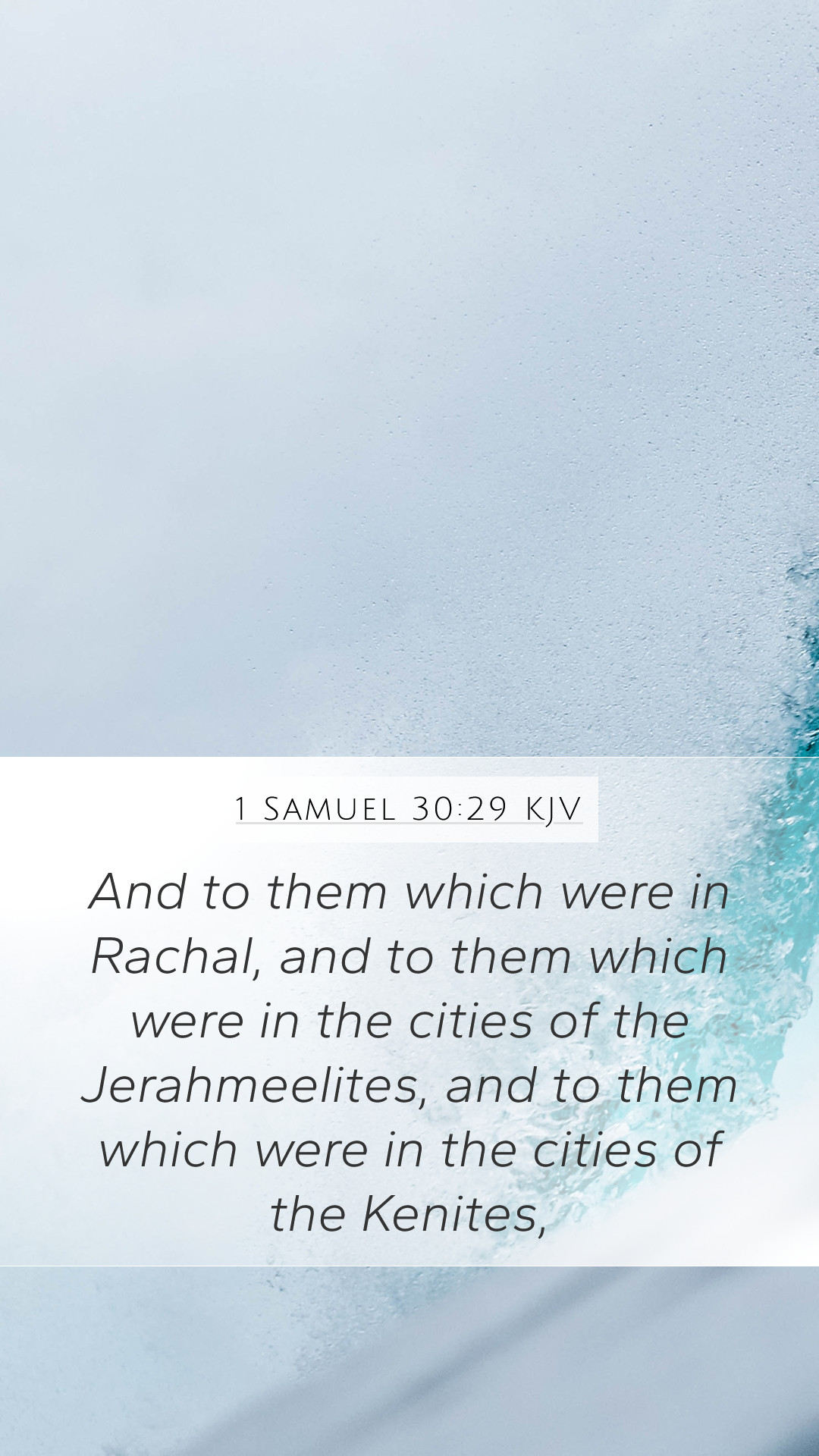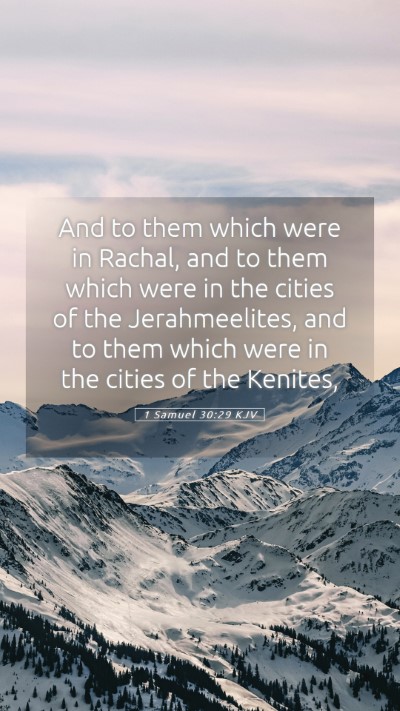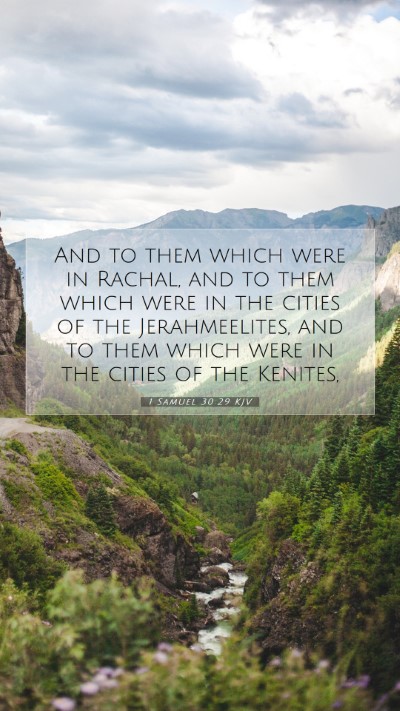Bible Verse Commentary: 1 Samuel 30:29
Verse: "And to those which were in Hebron, and to all the places where David himself and his men were wont to haunt." (1 Samuel 30:29)
Meaning of 1 Samuel 30:29
The verse presents David's care and acknowledgment towards his allies and supporters during a time of victory and the reclaiming of his belongings after the Amalekite raid. It emphasizes his leadership qualities and the importance of relationships built on loyalty and mutual support.
Contextual Summary
This verse concludes the narrative of David's pursuit and recovery of his family and possessions from the Amalekites. It highlights David's strategy in the larger picture of establishing his reign and influence as a future king of Israel.
Bible Verse Interpretations and Insights
- Matthew Henry: Highlights the significance of David's actions in recognizing those who remained loyal to him, even when he faced challenges. This reflects a godly leader's duty to honor and reward faithfulness.
- Albert Barnes: Points out that David’s distribution of spoils to allied cities illustrates a key principle of sharing blessings with those who aid us, thereby fortifying alliances and support systems in leadership.
- Adam Clarke: Discusses the regional importance of Hebron, underscoring that David's focus on these areas indicates his intention to unify the tribes of Israel under his future rule, enhancing his political strategy.
Biblical Exegesis
The essence of 1 Samuel 30:29 extends beyond immediate historical context; it addresses the responsibilities of leaders in maintaining relationships with their supporters and allies. David’s decision to send aid reflects a deeper theological principle in Scripture: the importance of stewardship in leadership.
Applications and Life Lessons
- Understanding the dynamics of loyalty and friendship in our personal lives—how we care for those who stand with us in difficulties.
- Recognizing our responsibility to share blessings, not just for personal gain, but for community upliftment and mutual support.
- Applying the principles of Davidian leadership in modern contexts, such as business, community organization, and ministry.
Related Bible Cross References
- 1 Samuel 30:7 - David’s consultation with Abiathar regarding the pursuit of the Amalekites.
- 2 Samuel 2:1 - Seeking direction from the Lord to move into Hebron.
- 1 Chronicles 12:39-40 - Description of the assembly of those who joined David in Hebron.
Bible Study Insights
This verse can be pivotal in Bible study groups discussing themes of leadership, loyalty, and community. The insights gathered can lead to fruitful discussions about the nature of gratitude and the intertwining of personal relationships with spiritual principles.
How to Interpret Bible Verses
To fully comprehend verses like 1 Samuel 30:29, it's crucial to consider:
- The historical and geographical context of the passage.
- The implications of leadership demonstrated by biblical figures like David.
- The overarching biblical themes of loyalty, stewardship, and divine guidance.
Understanding Difficult Bible Passages
A passage like this, while relatively straightforward, also poses interpretative challenges regarding leadership ethics and relational dynamics. It invites deeper reflection on how these principles apply in our lives today.
Conclusion
1 Samuel 30:29 serves as a profound reminder of the interplay between leadership and loyalty. It encourages believers to understand the significance of their relationships and the importance of recognizing and honoring those who stand by us in times of need.


